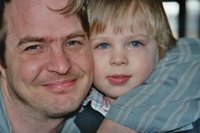Drie Musketiers
De samenvoeging van drie ziekenhuizen in de regio naar 1 locatie is een unieke kans geweest om er voor te zorgen dat het Jeroen Bosch beter is voorbereid op de ontwikkelingen in de maatschappij, waarin thema's als vergrijzing en de steeds mondigere patiënt grote impact hebben op de efficiëncy van de ziekenhuizen van morgen.
De patiënt centraal - 'patiënt vriendelijk en patiënt gericht'
Het idee is dat bij de inrichting van de dienstverlening van het ziekenhuis de behoeften van de patiënt centraal komen staan. Revolutionair? Nee, het is een ontwikkeling die al sinds de roerige jaren 60 gaande is en niet enkel in de zorg. Een ontwikkeling die er voor heeft gezorgd dat de relatie tussen arts en patiënt van ver verheven magiër is verworden tot een (meer) volwassen relatie, waarin de patiënt een rol in het geprek heeft gekregen.
Schaarste van kennis
De tijd dat de zieke mens volledig was overgeleverd aan de enkeling die de kennis tijdens een jaarlijkse openbare sessie (*) moest delen aan een exclusief groepje medemagiërs is voorbij.
Beschikbaarheid van informatie
Kennis in de context van het hedendaagse ziekenhuis gaat echter verder dan de vaardigheid om een aderlating uit te voeren.
Centralisatie van een patiënt vraagt om nog een stap verder in het beschikbaar krijgen van informatie. Dat begint bij het moment dat een patiënt een ziekenhuis binnenstapt. Het registreren van een patiënt of melden van de aankomst van de patiënt is de eerste stap.
Het Jeroen Bosch beschrijft het als een geheel nieuwe manier van werken en heeft daarvoor een instructiefilm voor patient en verzorgend personeel in voorbereiding.
(*) 1632 De anatomische les van Dr. Nicolaes Tulp



